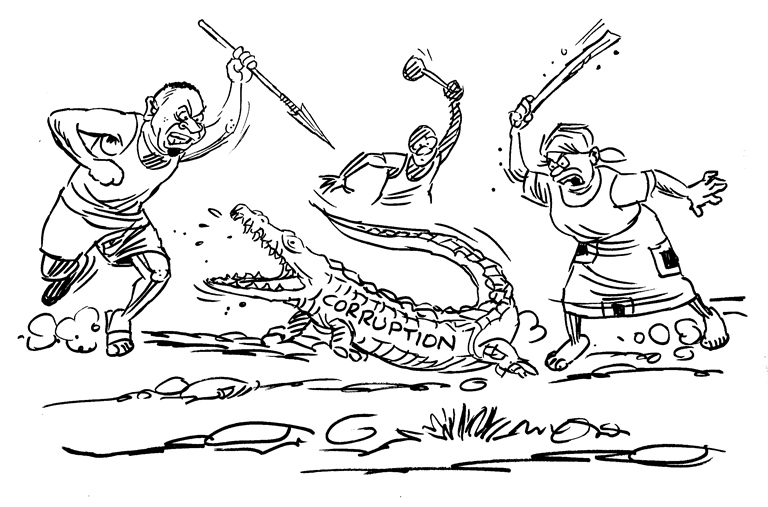About having a national dialogue on amnesty
In my entry of the past week, I mused over the need to consider formalising amnesty as a means of managing some complex corruption cases, to save time and other resources. The basis was that some corruption cases take unnecessarily long to be concluded and that when they get concluded the outcome does not usually make economic sense in view of the amount of investment made in all court processes.
I argued further that apparently there have already been some decisions akin to amnesty, which some quarters have described as “selective justice” because in similar cases other suspects or convicts were not granted the same options or leniency. That was the basis for my call to formalise amnesty for corruption suspects, or convicts, so that decisions to pardon suspects before trial can be made in a more transparent and accountable manner. In this entry I would like to emphasize what I stated based on the feedback I got in the past week.
The discussion attracted a lot of feedback, most significantly suggestions that the country’s anti-corruption agenda and momentum have been weakened by the perceived acts of leniency.
Well, this was not unexpected because a lot of people expected, with very good reasons, that implementation of the anti-corruption agenda would be characterized by firmness and determination in tune with the collective anger and frustration about corruption by all well-meaning Malawians. This feeling is well documented, that largely Malawians are not happy about corruption and would want tough, meaning non-lenient, measures against anyone suspected or found to be corrupt.
As such, any anti-corruption decisions must be consistent with the popular resolve that corruption is bad for the country, and anyone found on the wrong side of the law must be treated with well-deserved contempt.
Another point that was emphasized in the feedback is that amnesty or whatever name refers to granting pardon or leniency must be on the basis that such a decision will bring more positive results beyond the promise of restitution. This is all about ensuring that those that engage in corruption must not be perceived as being spared from their criminal responsibility. Rather, an act of amnesty must be a strategic decision to recover stolen assets or to restore damages to public assets caused by corrupt practices.
Other readers were quick to caution that amnesty should not be confused with plea bargaining which I learnt, in a layman’s understanding, to be an agreement made between a prosecutor and a defendant in which a defendant agrees to plead guilty, and may promise restoration of damages, to obtain some leniency.
It is therefore clear that the public may not be very familiar with all these legal practices and terms, and we cannot fairly expect that everyone must be a law expert to effectively engage in legal matters of national interest such as what happens in prosecuting corruption suspects or pardoning convicts. The least we should expect is for efforts to increase public literacy and awareness on these critical matters of national interest.
Further, in the case of opting to grant amnesty of potential corruption suspects, it will be good to open a national dialogue on the merits and demerits and whether our laws can adopt amnesty as a means of fighting corruption, especially recovery of stolen assets.
All I want to emphasize is that amnesty as a means of recovering assets and resolving some complex corruption cases can be a prudent option considering the past experiences where cases have dragged on in courts with no reasonable outcome. The current Attorney General has on several occasions been heard to support the approach although there are no formal guidelines for law enforcement agencies to follow. Perhaps his office could be better placed to initiate a national dialogue and the possibility of a process to develop and adopt relevant guidelines for offering leniency to selected corruption suspects in exchange for information that can lead to recovery of stolen assets and securing conviction of more suspects of corruption.




